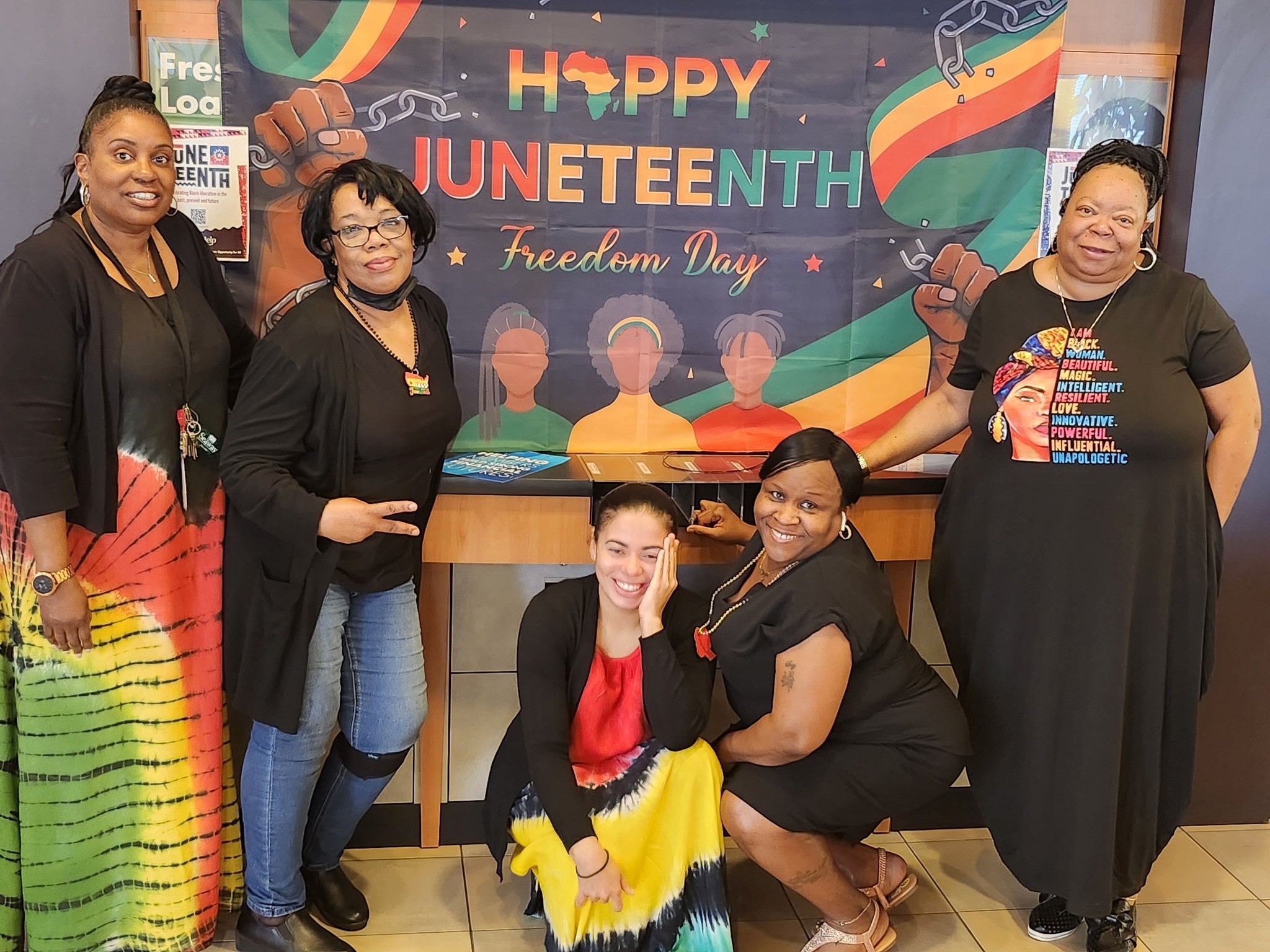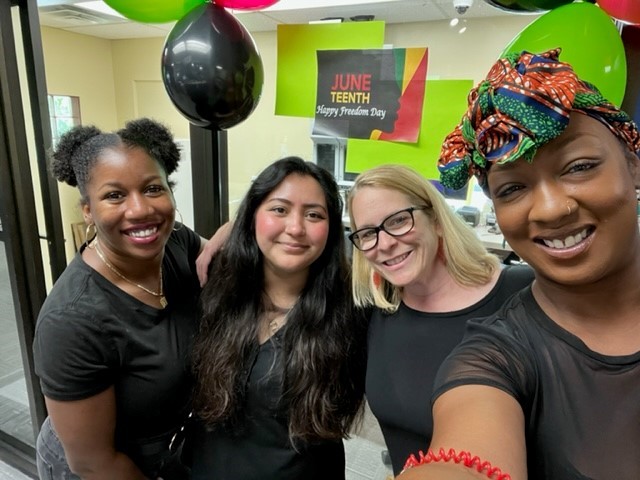
Staff at our Bronzeville, IL, branch celebrating Juneteenth
Juneteenth, also known as Freedom Day, is an annual holiday celebrated on June 19th that commemorates the end of slavery in the United States. At Self-Help, we are proud to honor Juneteenth, as our mission of creating ownership and financial opportunity
for all is deeply intertwined with the legacy of Juneteenth and what it means to truly be free.
In this blog post, we will discuss the historical significance of Juneteenth, why it still matters today, how you can celebrate, and how we at Self-Help honor this day.
The Historical Significance of Juneteenth
While the Emancipation Proclamation went into effect in January 1863 declaring the freedom of all enslaved people, it took more than two years for Union troops to restore federal authority in the final holdout of the defeated confederacy of Galveston,
TX, and enforce the proclamation on June 19, 1865. On this date, over 250,000 enslaved people in Texas were finally freed after years of persisting enslavement despite the formal abolition on paper.
Because this marks the date that everyone, including all enslaved Black people, were truly free in the U.S., June 19th is celebrated and honored by many communities as our nation’s true Independence Day. Juneteenth highlights the struggle
for freedom and equality as well as the resistance to change that persisted even after laws were passed.
Why it Still Matters Today
Despite the liberation of Juneteenth, the fight for equality is ongoing. The end of enslavement was quickly followed by increased Black Codes and institutionalized racism of the Jim Crow era where laws were created making it illegal for Black people to occupy many of the same spaces as white people. Juneteenth celebrations were discouraged
or excluded from public spaces and the fight for civil rights continued.
Many of the policies during this time still affect Black communities today. Mass incarceration of Black people has
functioned as a (legal) “new racial caste system,” according to Michelle Alexander, and redlining policies that blocked people of color from getting mortgages (while now illegal) have left a persistent blueprint for areas of decreased home value, increased
pollution, less green space, and more.
The fight for true equality continues in the U.S., which is why Juneteenth represents more than just a day of emancipation. According to Civics for Life,
“freedom, without access to justice, education, land, and the franchise, is fragile.” This holiday calls attention to the systemic barriers that have been engrained into the Black American experience and the opportunities
that we still have before us to make a more equitable future.
How You Can Celebrate
If you’re Black, please celebrate your joy, your achievements, your history, and your legacy however you see fit.
If you’re not and you have the privilege of being given the day off by circumstance or by your employer, please consider spending your day reflecting, supporting the Black community, and educating yourself on the systems that are still present
around us today.
Here are some ways you might want to spend your day:
- Attend a Juneteenth event where you can learn about and celebrate this day in a respectful environment.
- Support Black-owned businesses, who are often underfunded, underrepresented, and undervalued for their skills.
- Educate yourself on the importance of Juneteenth and the systemic barriers that still persist for Black people – if you’re reading this blog post, you’re already off to a good start.
- Donate to a local organization that supports equity for Black people – perhaps ones that focus on serving Black youth, providing financial education and/or homeownership for Black people, offering support for Black
queer folks (it is still Pride Month, after all), or assisting formerly incarcerated individuals.
- Sign up to be a mentor – Black employees are often less likely to be promoted or receive helpful feedback, so offering valuable insight and education that may not be readily available or just not offered can be
crucial for professional development.
Juneteenth at Self-Help

Staff at our Asheville, NC, branch celebrating Juneteenth
The legacy of Juneteenth is one that is essential to Self-Help's mission of ownership and economic opportunity for all. We believe that a big part of true freedom lies in financial freedom through education and opportunities.
At Self-Help, we are constantly finding new ways to support communities of color through responsible and affordable loans, financial education, and revitalization of underserved neighborhoods. We are doing our best to fill gaps in the financial
systems that often neglect people of color, women, and rural communities. We have all of our members to thank for making our work possible and being invaluable in coming together to work toward systemic change.